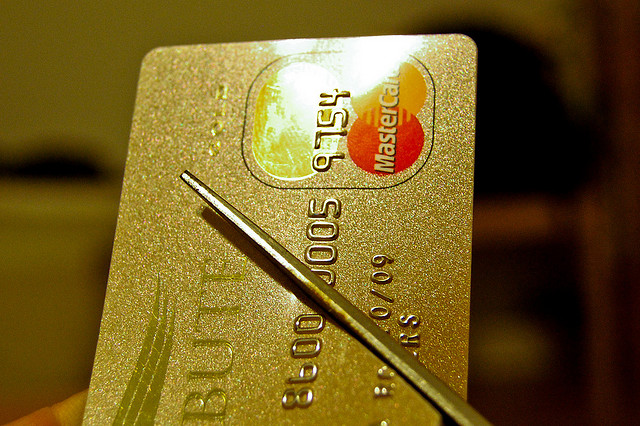When it comes to spending big, it’s easy to succumb to the irresistible temptation of “same day” discounts and open new retail store credit cards at the cash register.
Some of you will take the issuer’s discount, sometimes as high as 20 percent, and then never use the new credit card again. I’ve done this a few times over the years especially if I’m buying something really expensive, like a couch or electronics. Some of you will open the card, take advantage of the discount, and then use it responsibly over the years in a win-win relationship. And finally, some of you will use the card excessively and start revolving balances, thus giving back the initial discount plus much more in interest.
It’s this last group that equals the really big bucks for the credit card issuer. Retail cards are infamous for their subprime-style terms with interest rates well into the 20s and credit limits as low as a few hundred dollars. Using and revolving a retail card balance will quickly add to the balance. And, with such low credit limits modest purchases can result in highly leveraged cards, and lower credit scores as a result.
Regardless of what bucket you’re in, you’re going to start reading advice in a few weeks giving you guidance about what you should do with those retail credit cards. Many people are going to tell you to close them. Sometimes that’s good advice and sometimes it’s bad advice. So now that you’ve opened them, when should you know about closing them?
Close the Card Immediately
Many of you will close your card straight away because you only opened it for the discount. That’s fine but you should be aware that closing it doesn’t do away with any damage you’ve already caused to your credit by opening it. The credit inquiry that was posted by the issuer (or issuers) when you applied will still be there and they can lower your scores for the next 12 months. And, the newly opened account (or accounts) will be on your credit report summaries likely for the next decade.
Close the Card… Eventually
I’m of the school of thought that if you don’t close the card immediately you shouldn’t close it ever. Retail cards don’t charge monthly or annual fees (although that can certainly change), so the cost to simply hold on to the card is $0. And, the unused credit limit, albeit a small one, is likely helping your credit scores because credit scoring systems like unused credit limits. By closing the card you will lose the value of the card’s unused credit limit. You will, however, still get the benefit of the age of the account, open or closed. There’s a pretty common myth that when you close a credit card you lose the benefit of the account’s age, which is not true.
According to Craig Watts, FICO’s Director of Public Affairs, “When assessing length of credit history, the FICO score considers the origination date on all accounts on the credit report, open and closed. So an account that was opened for just one year 10 years ago still counts 10 years toward length of credit history in the eyes of the FICO Score, everything else being equal.”
Never Close the Card
If you never close the card, then you’ll always benefit from the card’s unused credit limit, assuming you don’t run up a large balance. You’ll also always benefit from the account’s age because the credit bureaus won’t remove the account from your credit reports, which they’ll likely do after the account has been closed for 10 years.





















